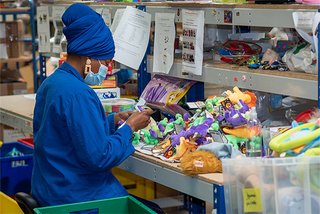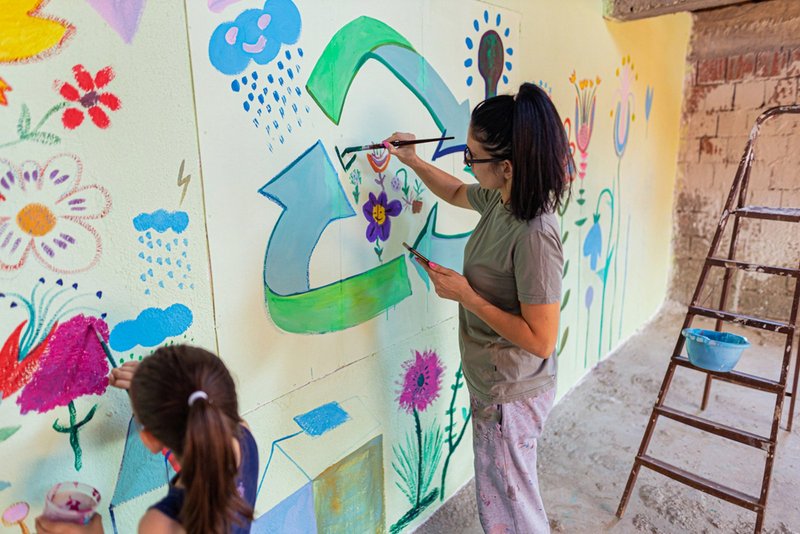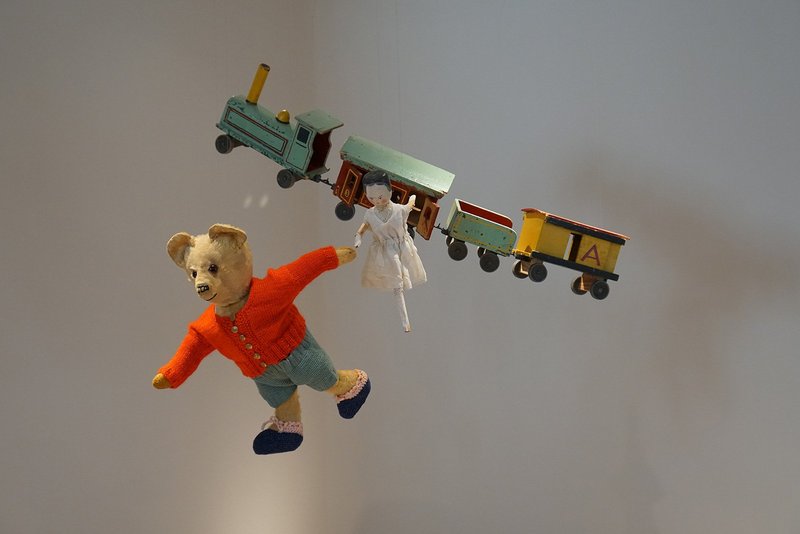
Play it again!
A second life for toys
By Peter Thomas
Sustainability and toys: that’s a very special relationship. After all, toys have great potential for secondary use. French company Rejoué, for example, is determined to tap into this.
What happens with toys when children outgrow them or lose interest in the respective play concept? Sometimes, we’re lucky enough to find the perfect recipient within our own network of family and friends. Then we can see at first hand the joy a toy brings, even in the hands of its second owner. This is the circular economy in the best sense of the term, with children and the environment both benefiting equally.
French entrepreneur Claire Tournefier recognised this link and put it in its wider social and environmental context: Rejoué (a French word meaning “to play again” or “to replay”), the start-up she founded, has been collecting used toys in good condition and getting them into the hands of children in the Île-de-France region surrounding Paris since 2010. At the same time, Rejoué has been helping people to reintegrate into the primary labour market since 2012. According to Rejoué spokesperson Gabrielle Pinho, there are now 60 such jobs as well as 20 permanent positions at Rejoué. Environmental and social sustainability is the company’s core objective.
Second life for toys

The used toys are checked, cleaned and reconditioned where possible before being given a second life. Rejoué now recycles around 55,000 toys a year in this way. In addition to its shop in Paris, its Vitry-sur-Seine location in particular plays a key role. This is where teams from nurseries and similar educational facilities can find a large selection of toys for their work. Toy libraries are another customer group. In addition, cooperation with aid organisations made possible through sponsorship allows Rejoué to directly support socially disadvantaged children in particular with toys.
Sabine Mecklenburg-Dorn, a volunteer with aid organisation Oxfam in Nuremberg, is also clear about the potential for reusing toys, with some three billion euros currently being spent on toys per year in Germany alone. Once children have lost interest in an item, “such pre-loved toys” are gladly received by any of the 55 Oxfam shops – provided that they are still in good condition and, in the case of stuffed animals and cuddly toys, have been freshly washed.
Doing good several times over
![[Translate to Englisch:] Wie Rejoué fördert auch Oxfam die Zweitnutzung von Spielzeug.](/fileadmin/_processed_/3/f/csm_20231611_Rejoue_Boutique_24352_ea3a6e1f17.jpg)
“As a former teacher, I particularly like that people benefit in several ways from second-hand toys sold via the Oxfam shops”, said Ms Mecklenburg-Dorn. The profits made help to fund the work of the emergency relief and development organisation. For example, through its support for educational projects, children in the Global South can attend school and be taught to read and write. This can give them the foundations they need to establish a sustainable existence and permanently lift themselves out of poverty.
Many manufacturers have now also recognised the topic of toys and the circular economy. Mattel, for example, launched its PlayBack programme in May 2021, enabling families to give their used Mattel toys a second life. In this case, the company is focused on the materials and not the products in and of themselves. At Mattel, recycling means processing the plastics contained and reusing them as raw material for playground equipment. This approach fits very well with Mattel’s aim to “achieve 100% recycled, recyclable or bio-based plastic materials” across all toys and packaging by 2030.
An inspirational success story
![[Translate to Englisch:] Kreislaufwirtschaft: Rejoué schenkt Spielzeug ein zweites Leben](/fileadmin/_processed_/e/7/csm_20231611_Rejoue_Toy-Cycle_387f6fd467.jpg)
In comparison to this, initiatives like that of Rejoué focus more on the toy as an actual product. Gabrielle Pinho explained that the portfolio of reused products includes not only toys, but also board games and books. The items are usually donated by private individuals and companies. Rejoué has been 22% self-financed to date, while the rest of its costs are covered by public funding and private donations. The company has been considerably impacted by the coronavirus pandemic: in addition to an operational lockdown lasting around eight weeks, there have been longer-term restrictions in production. The number of collection points and level of footfall in its stores are also down.
The team is determined to bounce back, however: Rejoué plans to strengthen its activities for the current year. In particular, it intends to resume reintegrating people into the labour market and will respond to changed conditions post-coronavirus. The number of toys passed on is expected to rise considerably again from 2021 as well.
Rejoué’s success story also serves as a source of inspiration for other initiatives, with whom the company is pleased to share what it has learned. For example, it has provided the impetus for the establishment of Rejouons Solidaire, a network of seven suppliers that aims to promote the sustainable secondary use of toys in France.
Author profile
Telling stories about technology and people: This has fascinated the journalist, author, cultural scientist and lecturer for more than 30 years. Technical toys are always in focus, from construction kits to interactive digital learning toys. After studying and working as a research assistant at the university, Peter Thomas writes for daily newspapers, magazines and company publications in German and English-speaking markets. In addition to the world of toys, his main areas of focus are mobility, security, safety and medical technology.




